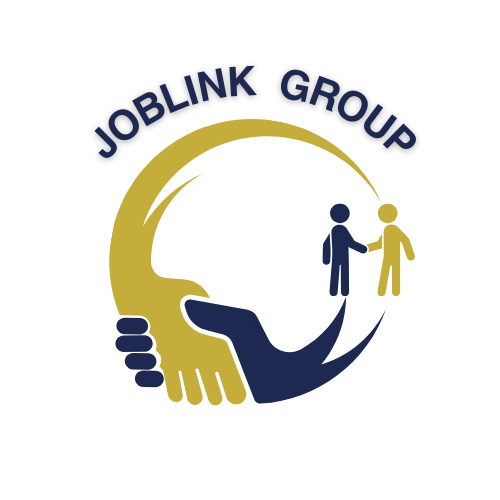Navigating Career Transitions: How to Make a Smooth Shift to a New Industry or Role
Transitioning to a new industry or role can be a daunting but rewarding experience. Whether you’re seeking new challenges, better growth opportunities, or a fresh start, a strategic approach can make the career shift more manageable. This article outlines the essential steps to help you navigate the process, from assessing your transferable skills to building a solid transition plan.
Assessing Your Transferable Skills
Before diving into a new industry or role, it’s important to understand the skills you already possess that can be valuable in a different context. These are known as transferable skills, which are abilities that can be applied across various job roles and industries. Identifying them will help you present yourself as a suitable candidate for the new position.
- Analyze Your Current Role
Look at the tasks and responsibilities in your current role to identify skills that can be applicable elsewhere. Common transferable skills include project management, communication, leadership, problem-solving, and technical abilities like data analysis. - Use Online Tools for Skill Matching
Platforms like LinkedIn or job search sites can help identify relevant skills by comparing job descriptions in your current industry with those in the desired field. This can give you a clearer picture of what employers are looking for. - Highlight Soft Skills
Soft skills such as adaptability, teamwork, and conflict resolution are highly valued across industries. These skills are often more difficult to teach than technical skills, making them especially valuable when transitioning to a new role.
Researching the New Field or Role
Understanding the landscape of your desired industry or role is critical for a successful transition. Research can help you identify potential challenges, set realistic expectations, and find out what you need to learn to be competitive.
- Understand Industry Standards
Familiarize yourself with the standards, norms, and culture of the new industry. This includes understanding common terminologies, expectations, and trends. Resources such as industry reports, online forums, and industry-specific websites can provide valuable insights. - Research Salary Expectations
Know the typical salary ranges for the roles you’re interested in. Tools like Glassdoor, Payscale, or industry salary surveys can give you an idea of what to expect. This knowledge will be beneficial during salary negotiations. - Identify Required Skills and Certifications
Investigate the qualifications and skills required for the new role. You might need to acquire additional certifications, take courses, or develop specific skills to match industry requirements. Make a list of these requirements and assess which ones you already have and which you need to develop.
Networking in Your Desired Field
Building a network in the new industry can provide valuable information, job leads, and mentorship. Connecting with professionals in your desired field can help you gain insights into industry-specific challenges and best practices.
- Attend Industry Events and Meetups
Look for conferences, trade shows, or networking events where you can meet professionals in the field. Attending these events will give you exposure to industry trends and enable you to make valuable connections. - Leverage LinkedIn and Other Professional Networks
Use LinkedIn to connect with individuals who work in the industry or role you’re targeting. Join relevant LinkedIn groups or forums where you can engage in discussions and ask for advice. - Request Informational Interviews
Reach out to professionals who have already transitioned to your desired industry and ask for an informational interview. These interviews are great opportunities to learn about the challenges they faced, the steps they took, and advice they would offer. - Seek Out a Mentor
If possible, find a mentor who has experience in the industry or role you’re targeting. A mentor can provide guidance, support, and help you avoid common pitfalls during the transition process.
Creating a Career Transition Plan
To make the transition smoother, establish a career transition plan that outlines the steps needed to reach your goal. A well-structured plan helps you stay focused, track progress, and address any obstacles that may arise.
1. Set Clear Goals
Define your objectives by setting short-term and long-term goals. Your goals might include:
- Short-term: Acquiring a specific certification, attending a certain number of networking events, or completing an online course.
- Long-term: Landing a role in your desired industry within six months or gaining expertise in a new area.
2. Build a Transition Timeline
Establish a timeline for achieving your goals. Break down your objectives into smaller tasks and assign deadlines to each. This approach allows you to measure your progress and stay on track.
3. Identify Learning Resources
Create a list of resources that will help you gain the necessary skills and knowledge. These resources could include:
- Online courses and webinars: Platforms like Coursera, LinkedIn Learning, or Udacity offer courses on various topics.
- Books and articles: Find books or articles written by experts in your desired field.
- Workshops and training programs: Enroll in relevant workshops or programs that offer hands-on training.
4. Update Your Resume and Online Profiles
Tailor your resume and LinkedIn profile to reflect the skills and experiences that are relevant to the new industry or role. Highlight transferable skills, relevant projects, and any additional training or certifications you’ve obtained.
5. Apply for Relevant Positions
Begin applying for roles that align with your transition plan. Be prepared to customize your cover letter for each application, emphasizing your enthusiasm for the new field and explaining how your transferable skills make you a strong candidate.
Additional Tips for a Smooth Career Transition
- Stay Open to Entry-Level Opportunities
Be flexible and consider entry-level positions or internships if they provide a path to your desired industry. While it may mean starting at a lower level, it can accelerate your career growth in the long run. - Seek Feedback
Ask for feedback during interviews or networking meetings to learn what you can improve. Constructive criticism can help refine your approach and make you a stronger candidate. - Stay Positive and Resilient
Career transitions can be challenging and may take time. Keep a positive mindset, stay persistent, and be open to new experiences that can help you grow.
Conclusion
Making a career transition to a new industry or role can be a significant but worthwhile challenge. By assessing your transferable skills, thoroughly researching the new field, networking with professionals, and creating a detailed career transition plan, you can make the shift smoother and increase your chances of success.
The key to a successful career transition lies in preparation and adaptability. By taking a strategic approach, you can navigate the uncertainties of changing careers and find fulfillment in a new and exciting path. Stay committed to continuous learning, seek out opportunities for growth, and embrace the journey as you move towards your career goals.

